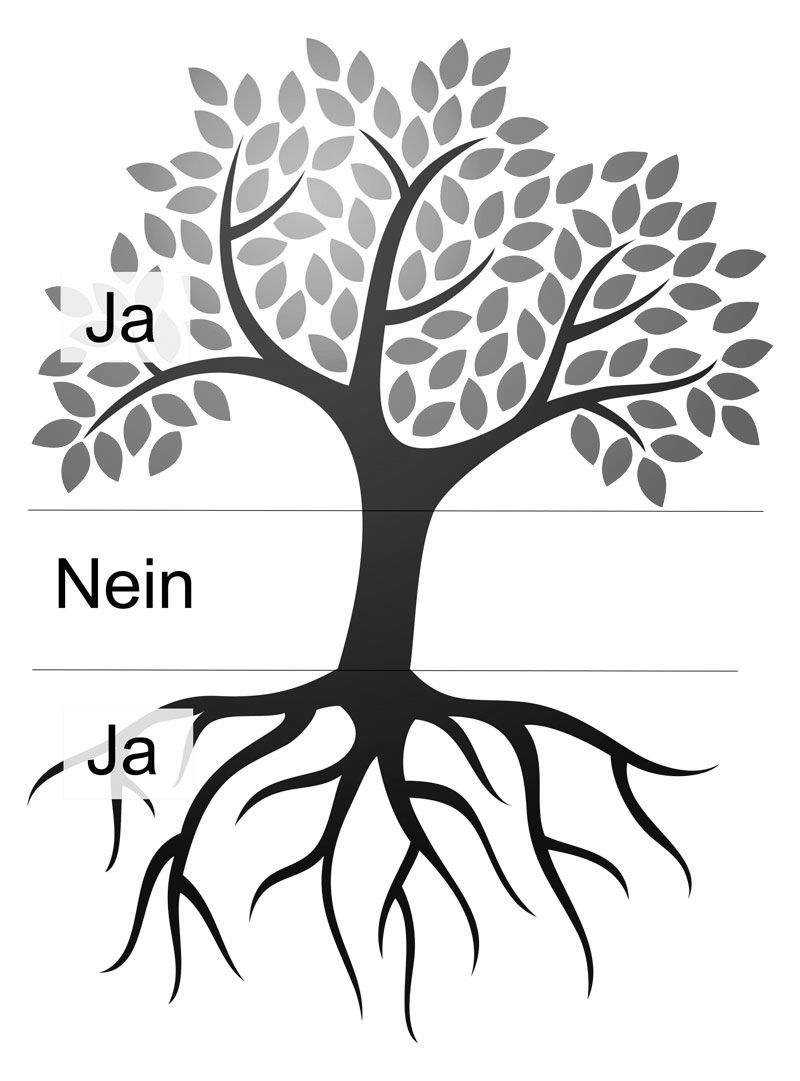The Power of the Positive No
based on the work of William Ury
"Before you say 'yes' to others, make sure you don't say 'no' to yourself." How do we take our concerns seriously and say "no" to a demand, person or situation without hurting relationships? This workshop helps you work through cultural beliefs and habits and significantly expands your communication skills
Cultural-historical and social patterns shape the way we relate and communicate. If I confront my partner with a "no to his negligence", it can easily lead to a change in the mood of the relationship. The "no" comes across as challenging and mostly personal.
What does a Positive No mean? The "no" is positive when it consists of two "yeses" and one "no." I say "yes" to me and "yes" to you in a way that makes the "no" more likely to be heard and understood. We thus bypass conforming, avoiding, or even attacking.
How do we maintain this fine balance between standing up for our goals and nurturing our private or professional relationships? How do we recognize and strengthen the "yes" to ourselves and communicate it "empathically" for the other? How do we deal with feelings such as anger, shame or fear in a liberated and effective way - a prerequisite for a powerful Positive No? In this workshops we will explore these and other essential questions in a practice-oriented way.
Aim
Contents
Methodology
Short theory lectures, individual and group exercises, refreshing movement sessions, short insightful film clips, joint evaluation and sharing of experiences.
Inquiry
Cultural-historical and social patterns shape the way we relate and communicate. If I confront my partner with a "no to his negligence", it can easily lead to a change in the mood of the relationship. The "no" comes across as challenging and mostly personal.
What does a Positive No mean? The "no" is positive when it consists of two "yeses" and one "no." I say "yes" to me and "yes" to you in a way that makes the "no" more likely to be heard and understood. We thus bypass conforming, avoiding, or even attacking.
How do we maintain this fine balance between standing up for our goals and nurturing our private or professional relationships? How do we recognize and strengthen the "yes" to ourselves and communicate it "empathically" for the other? How do we deal with feelings such as anger, shame or fear in a liberated and effective way - a prerequisite for a powerful Positive No? In this workshops we will explore these and other essential questions in a practice-oriented way.
Aim
- You experience the attitude and the concept of Positive No
- You strengthen your relationships with people who want something from you
- You negotiate in a more relaxed and successful way - professionally and privately
- You change personal and societal communication and conflict habits
- Social patterns: adapting, avoiding, attacking
- Functioning without "meaning" - stress and burnout
- The dangers of judging and blaming and "one-must-should "Recognize and communicate the "yes" to oneself and to the matter
- Deal constructively with one's own fear, anger and shame for an authentic Positive No
- The positive no consists of two "yeses" and one "no"
- Form the inner basis for relaxed and successful negotiations
- Estimate violent reactions and deal with them appreciatively
- Cultivate one's own strength and center - independent of the outside
Methodology
Short theory lectures, individual and group exercises, refreshing movement sessions, short insightful film clips, joint evaluation and sharing of experiences.
Inquiry
